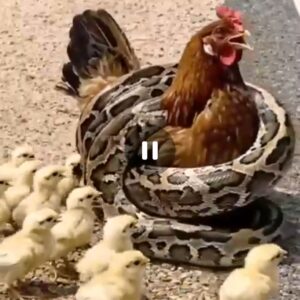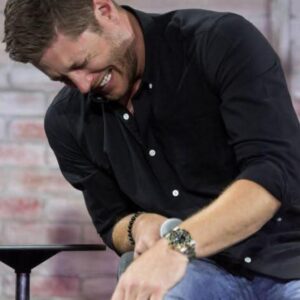Officer Sarah Chen had pulled me over for a broken taillight on Highway 49, but when she walked up and I saw her face, I couldn’t breathe.
She had my mother’s eyes, my nose, and the same birthmark below her left ear shaped like a crescent moon.
The birthmark I used to kiss goodnight when she was two years old, before her mother took her and vanished.
“License and registration,” she said, professional and cold.
My hands shook as I handed them over. Robert “Ghost” McAllister.
unstable old biker she’d ever dealt with—staring too hard, hands shaking, acting strange.
As she ran me through the tests, I studied her hands. She had my mother’s long fingers. Piano player fingers, Mom used to call them, though none of us ever learned.
On her right hand, a small tattoo peeked out from under her sleeve. Chinese characters. Her adoptive father’s influence, probably.
“Mr. McAllister, I’m placing you under arrest for suspected DUI.”
“I haven’t been drinking,” I repeated. “Test me. Breathalyzer, blood, whatever you want.”
“You’ll get all that at the station.”
As she cuffed me, I caught her scent—vanilla perfume and something else, something familiar that made my chest ache.
Johnson’s baby shampoo. She still used the same shampoo. Amy had insisted on it when Sarah was a baby, said it was the only one that didn’t make her cry.
“My daughter used that shampoo,” I said quietly.
She paused. “Excuse me?”
“Johnson’s. The yellow bottle. My daughter loved it.”
“Sir, stop talking.”
But I couldn’t. Thirty-one years of silence were breaking. “She had a birthmark just like yours. Right below her left ear.”
Officer Chen’s hand instinctively went to her ear, then stopped. Her eyes narrowed. “How long have you been watching me?”
“I haven’t been. I swear. I just—” How could I explain? “You look like someone I lost.”
She pushed me toward her cruiser, rougher now. “Save it for booking.”
The ride to the station was agony. Twenty minutes of staring at the back of my daughter’s head, seeing Amy’s stubborn cowlick that no amount of gel could tame.
She kept checking the mirror, probably wondering if she had a stalker in her backseat.
At the station, she passed me off to another officer for processing.
But I saw her watching from across the room as they took my prints, my photo, ran my record.
Clean except for some minor stuff from the ’90s—bar fights during the angry years after Sarah disappeared.
The breathalyzer came back 0.00. The blood test would too. Officer Chen frowned at the results.
“Told you I was sober,” I said when she came back.
“Why were you acting so strange?”
“Can I show you something? It’s in my vest. A photo.”
She hesitated, then nodded to the desk sergeant who handed her my belongings.
She went through my vest pockets—the knife, the challenge coins from my Marine days, some cash. Then she found it. The photo worn soft as cloth.
Her face went white.
It was Sarah at two years old, sitting on my Harley, wearing my oversized vest, laughing at the camera.
Amy had taken it two weeks before they disappeared. The last good day we’d had as a family, even divorced.
“Where did you get this?” Her voice was sharp, professional, but underneath, something else. Fear? Recognition?
“That’s my daughter. Sarah Elizabeth McAllister. Born September 3rd, 1990, at 3 AM. Eight pounds, two ounces.
She had colic for three months and only stopped crying when I rode her around the neighborhood on my bike. Her first word was ‘vroom.’”
Officer Chen stared at the photo, then at me, then back at the photo. I saw the moment she saw it—the resemblance. The same nose, the same stubborn chin.
“My name is Sarah Chen,” she said slowly. “I was adopted when I was three.”
“I still have it,” she said quietly. “In my baby book. The one thing that didn’t make sense—a Tweety Bird sticker from a hospital I’d never heard of.”
“Mercy General in Sacramento. It closed in ’95.”
“Why didn’t you… why didn’t anyone find us?”
“Your mother was smart. Richard had connections, money. They knew how to disappear.
And after Amy died, there was no trail at all. You were just Sarah Chen, adopted daughter of respectable people.”
She pulled out her phone, showed me a photo. Two kids, both young. “These are my sons. Your… your grandsons. Tyler is six. Brandon is four.”
They looked like me. Both of them had the McAllister chin, the same crooked smile I saw in the mirror every morning.
“They love motorcycles,” she said, laughing through tears.
“Drive my husband crazy. Always asking to see the bikes when we pass riders. I never let them. Said they were dangerous.”
“They’re only as dangerous as the person riding them.”
“I became a cop,” she said suddenly. “I became a cop because I wanted to find dangerous bikers.
The ones who abandoned their kids. The ones my parents said… the ones they said you were.”
“Did you find any?”
“Some. But more often, I found bikers helping broken-down motorists. Bikers raising money for cancer kids. Bikers protecting abuse victims. It didn’t fit the story I’d been told.”
“Sarah—” I reached across the table, stopped. “Can I… can I touch your hand? Just to know you’re real?”
She reached out slowly. Our hands met—mine weathered and scarred from decades of searching, hers strong and steady. The moment our skin touched, she gasped.
“I remember,” she whispered. “Oh God, I remember. You used to trace letters on my palm before bed. The alphabet. You said it would make me smart.”
“You learned your letters before you could properly walk.”
“There was a song. Something about wheels?”
“‘Wheels on the Bike.’ I changed the words to the bus song. You made me sing it every night.”
She was sobbing now, this tough cop, my lost daughter. “The calls. There were calls, when I was young. Linda would hang up. Say they were telemarketers.”
“I never stopped trying. Even when the numbers changed, I kept trying.”
“Thirty-one years?”
“Thirty-one years, two months, and sixteen days.”
“You counted?”
“Every single one.”
The desk sergeant knocked. “Chen, everything okay in there?”
Sarah wiped her face. “I need a minute, Tom.”
“The guy’s prints came back clean. Just some old bar stuff. You pressing charges?”
She looked at me. “No. No charges. Misunderstanding.”
After he left, we sat in silence for a moment.
She pulled back, looked at me. Really looked at me. “You look exactly like your photo. The one the Chens had. From before.”
“What photo?”
She pulled out her phone, showed me. It was my Marine portrait from 1973. Young, clean-shaven, formal.
“Amy kept that?”
“The Chens found it in her things. Only picture she had of you. I used to stare at it, wondering what kind of man my father had been.”
“Now you know. Just an old biker who never stopped looking for his little girl.”
“Found her though.”
“You found me, technically. Arrested me, even.”
“Best arrest I ever made.”
I keep the arrest paperwork framed in my apartment. Officer S. Chen arresting Robert McAllister for suspected DUI.
The document that ended thirty-one years of searching. The traffic stop that brought my daughter home.
Sometimes the universe has a sense of humor. Sometimes it takes a broken taillight to fix a broken heart. Sometimes you have to be arrested by your daughter to finally be free.
And sometimes, just sometimes, the lost get found in the most impossible ways.
Tyler asked me last week, “Grandpa, why do they call you Ghost?”
“Because for thirty-one years, I was haunting someone who didn’t know I existed.”
“But ghosts aren’t real.”
No,” I said, looking at Sarah as she helped Brandon with his toy motorcycle. “But resurrection is.”
She heard me, looked up, smiled—my mother’s smile, my smile, her sons’ smile. The smile I’d searched for in every crowd for three decades.
Found you, baby girl. Finally found you.
Even if you had to arrest me first.





